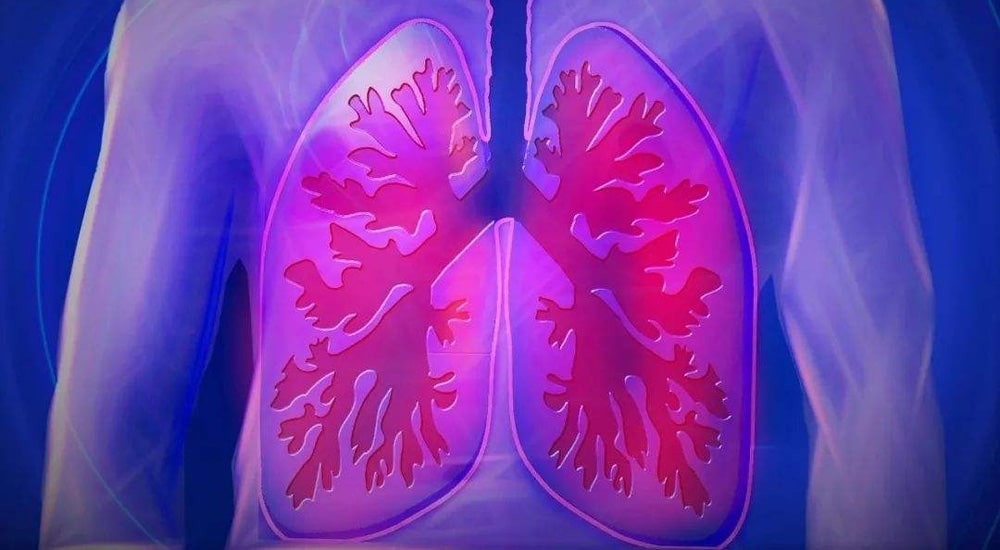The rise of immunotherapy has greatly improved the treatment pattern of advanced lung cancer and provided more possibilities for personalized diagnosis and treatment of tumors.
In order to choose the most suitable treatment, patients with advanced lung cancer are tested for PD-L1 expression and mutations in the driver gene. If PD-L1 expression is high (greater than 50%), it is generally believed that monotherapy with PD-1/PD-L1 inhibitors can benefit. If the patient has EGFR and ALK gene mutations, targeted drug therapy is preferred. However, when a patient has a high PD-L1 expression and a RET gene fusion mutation at the same time, should a targeted drug targeting the RET gene be used, or should a PD-1 inhibitor be used?
Faced with such a choice, the following cases have given us some inspirations, which are shared with you here. If the patient has a positive mutation of the RET gene (probability 1-2%), even if the PD-L1 expression is greater than 50%, the efficacy of pembrolizumab monotherapy is very limited, so it is recommended that these patients communicate with their attending physicians Finally, try to choose targeted drug therapy for the RET gene.
Case 1: PD-L1 is highly expressed in patients with advanced lung cancer, and immunotherapy has not been effective
A 69-year-old male patient with no smoking history and no significant comorbidities. In March 2020, the patient went to the doctor because of cough and was diagnosed with lung adenocarcinoma after examination. After bronchial needle biopsy, the tumor tissue of the patient had high PD-L1 expression, and the expression of 22C3 antibody reached 90%.
Through gene sequencing, it was found that the tumor had a KIF5B-RET gene fusion mutation. The patient’s performance status was good, but he had lung, liver, and bone metastases. The clinician prescribed immunotherapy alone according to the patient’s comprehensive condition, using 200 mg of pembrolizumab (K drug) every 3 weeks.
After two courses of K medicine, the patient developed severe pain. Imaging examinations such as CT confirmed the progression of the disease. Immunotherapy was stopped for this, and chest radiotherapy was started. However, the patient’s physical condition severely deteriorated and unfortunately passed away three months later.
Case 2: Only 9 months from diagnosis to death
A 65-year-old female patient with no smoking history. In December 2019, he visited a doctor because of chest pain and cough, and was diagnosed with lung cancer. Pathological examination at that time found that PD-L1 expression was 70%. Simultaneous gene sequencing revealed a CCDC6-RET gene fusion mutation.
Since the patient has lung, bone, and liver metastases, only systemic therapy can be used. Due to the high expression of PD-L1, the doctor gave immune monotherapy. The dose is 200 mg of pembrolizumab every 3 weeks.
The patient started immunotherapy in February 2020, and his disease progression was found three months later. As a last resort, the doctor gave the patient radiation therapy. Due to the patient’s poor physical condition, chemotherapy could not be performed, and palliative treatment was started. The patient died in November 2020, just 9 months from diagnosis to death.
Targeted drugs targeting RET gene fusion mutations are more appropriate options
At present, for lung cancer with RET gene fusion mutation, there are research data confirming the efficacy of targeted drugs, such as lenvatinib, vandetanib, cabozantinib, etc., the objective response rate of treatment is 16%-47%. The median progression-free survival was between 4.7 and 7.3 months. In addition, some other RET gene-targeted drugs have been launched one after another. The response rate of Selpercatinib (Selpatinib) in the first-line treatment of RET-positive lung cancer has reached 85%, and 90% of patients have a treatment response time of more than 6 months.
Although the efficacy of targeted drugs for RET gene fusion mutations is not bad, in the face of the choice of targeted drugs or immune drugs, in this case, the doctor chose immunotherapy based on the expression of PD-L1 in the patient. In the later stage, due to the progression of the disease, the physical strength of the patients was severely reduced, and then the precious treatment opportunities were lost.
Immunotherapy is a life-saving straw for many patients, especially lung cancer patients with high PD-L1 expression. If there is no suitable targeted drug, immunotherapy will be preferred. However, we cannot over-absolute immunotherapy. Patients with driver gene mutations tend to benefit more from targeted drug therapy.
There is no absolute good or bad for each treatment method and drug. For patients, the more choices, the better. We hope that every patient can find a suitable treatment method to achieve longer and better survival benefits.









